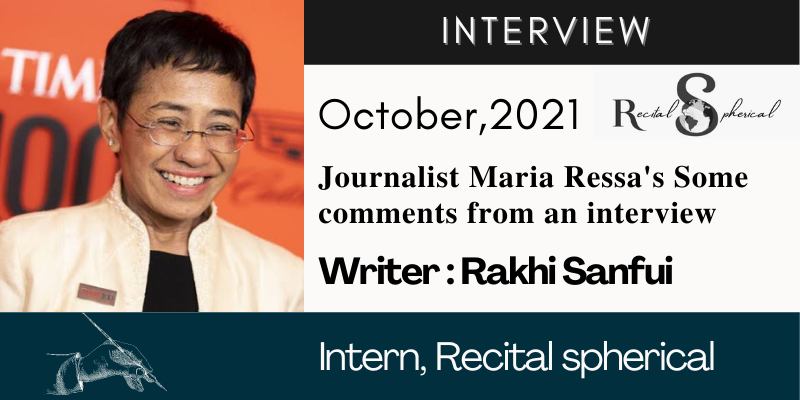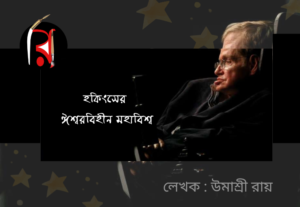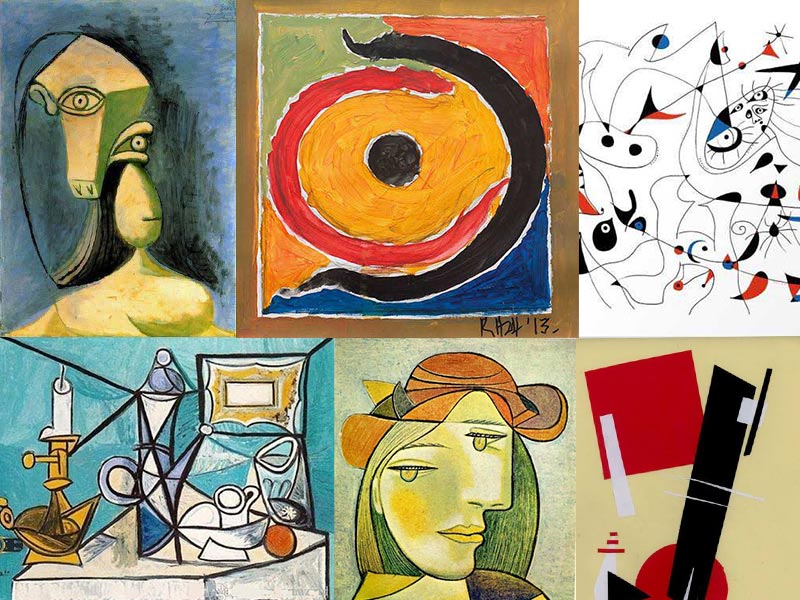Maria Ressa is a notable name in the world of journalism. Philippine journalist Maria Resha was awarded the Nobel Peace Prize in 2021.
About Maria Ressa
Ressa was born in 1963 in Manali. At that time, he lost his father. However, he did not get close to her father or mother physically. After her father’s death, his mother moved to the United States. Ressa and her sister lived with her father family.
Ressa studied Biology and Theater as an undergraduate at University of Princeton. She completed his bachelor’s degree in English and received a theater and dance certificate in 1986.
After she was awarded a Fulbright Fellowship to study political theatre at the Philippines Diliman University,where she also taught several journalism degree as a faculty member in the university.
Maria Ressa of the Philippines was awarded the Nobel Peace Prize for 2021 along with Dmitry Muratov, the Russian editor. In an interview with The Hindu, Miss Resa, author of the upcoming book How to Stand Up to a Dictator, talks about her fight with the Philippine government and ‘Big Tech’ social media companies.
Let’s take a look at some of the comments she made in interviews –
1) It is not since 1935 that the Nobel Peace Prize went to a journalist, (Carl Von Ossietzky) who wrote about the Nazi regime in Germany’s remilitarisation plan. So what do you think is the message the Nobel Peace Committee is sending in 2021?
His comment was, this is a special moment where exactly what happened after 1935. I have always believed in the argument that our information is an ecosystem that is like an atomic bomb. But we need to be united globally, because this unity will be the answer to the problem. We have to try to solve the problem in a united manner. This information was seen after World War II, when they formed the National League and the Universal Declaration of Human Rights. Where values were given priority.
If you ask me, I can say ‘technological standards’, where the role of standing by people is given priority, not money. In this context, he further commented that it is a place holder for all the journalists in the world who find it so difficult to do their job. Here we can hope that this creative destruction will take us to a place that is better than where we are.
2) Both Philippines and India are on the list of Top 10 countries where journalists have been killed or targeted. For journalists, the growing threat is coming from democratically elected, populist, and increasingly authoritarian regimes worldwide. What do you think led to the rise of populism?
If it is good then they will see that the journalists have lost the ability of gatekeeping towards the past. Only in Ukraine to reveal different realities for the first time in the world. An example of this is the Russian people’s information campaign in the 2014 election campaign.
Show there is attracted to using social media. To people, social belief has become a game of disbelief. A study from Oxford University found computation propaganda, where there are about 8 UN political leaders on social media.
Social is a manipulative platform, he added. By which ordinary people are manipulated. We use a manipulation to change what we think through this platform policy. This God said to one candidate, ‘Paleotic passions, come from medieval institutions and technology’. With the advantage of making money like here it is a business model that is not just our information, it is being used to manipulate us.
3)The counter argument is that social media, big tech companies have democratised expression, given everyone a platform. Why do you think they are, as you describe, an agent for authoritarianism and not an agent for the people’s right to know?
In this context, he said, let’s go to 2011 and see how the Arab Spring turned into a more winter. The government thinks that micro targeting vulnerabilities can be exploited, and those vulnerabilities were used for products. It can also be said that the government started using those tools. Jam Mark Zuckerberg said, “It’s a freedom of speech issue, but here’s what the comedian Ranjit has to say, it’s a ‘freedom of reach problem’.”
One study found that words spoken out of anger spread faster than the truth, and it is not known how much truth there is behind it. If social media platforms are biased against the essence, they will be biased against journalism.
4)Tell us a little bit about your own journey fighting the strongman leader President Duterte, leading up to your arrest in 2019.
The President of the Philippines is democratically elected. But according to many digital achievement plaintiffs, he took over all power once he became president and changed it from the inside out.
During his reign, he killed about 19 journalists, including 63 lawyers and more than 400 human rights activists in a bloody war.
For the truth, the war made me cringe at the thought of how many people had died. Because in 2012 the rappler was set up with twenty young employees. Where the information was first published, showed people how to manipulate online. I wrote a series on the Internet called Arms Promotion about how social media affects a person. There have even been threats of arrest.
5)What are your suggestions for journalists just starting out? Is there a toolkit on how to deal with a tough state?
First of all, the journalist, the news agency will talk about that before [will continue] when we are competing against the opponent. We are on the same side. We are social for the same when it is a battle of truth, and especially, in video. In the fight for truth, the way forward. This is an amazing time for a number of journalists, because the mission was not as important as it is today.
Among the best books she has written :
“Seeds of Terror” & “From Bin Laden to Facebook”.
Writer Introduction :Rakhi Sanfui(Student of Journalism and Mass com.,New Alipore College)(Intern of Recital Spherical)(2021)




